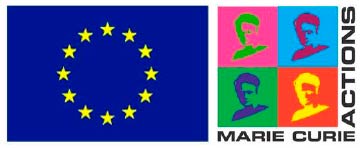ESR 8: Fracture in biological anisotropic hard tissues (human bones)
- Application deadline: 30/06/2020 17:00 CEST Brussels
- Offer starting date: 01/11/2020
- Researcher profile: First Stage Researcher (R1)
- Type of contract: Temporary
- Job status: Full-time
- Hours per week: 40
- Secondments: 3 months at Sorbonne Université (France), 3 months at ETH Zurich (Switzerland) & 4 months at Bosch, Renningen (Germany)
Contract signing and incorporation dates are indicative and have yet to be defined.
- Recruiting institution: Tel-Aviv University»
- City, Country: Tel-Aviv, Israel
- Organization type: Higher Education Institute
- Department: School of Mechanical Engineering - Experimental Biomechanics and Computational Mechanics Laboratory
- Main supervisor: Prof. Zohar Yosibash
- Research Field:
- Engineering > Mechanical engineering
Objectives
Perform experiments on bone tissues at micro and macro scales, learn to use a micro-CT scanner and apply a digital image correlation (DIC) system for the measurements of displacements and strains, formulate a failure initiation criterion for trabecular bone, and verify and validate it by application of a high order Finite Element Analysis (FEA).
Benefits
A full-time fixed-term contract is offered. Marie Curie ITNs provide competitive financial support to the ESR including: a competitive monthly living and mobility allowance and salary, coverage of the expenses related to the participation of the ESR in research and training activities (contribution to research-related costs, meetings, conference attendance, training actions, etc.). The recruited researchers will have a regular contract with the same rights and obligations as any other staff member of the institution.
Eligibility criteria
Applicants must at the time of recruitment:
- Be in the first four years (full-time equivalent) of their research careers. The four years start to count from the date when a researcher obtained the degree (e.g. Master’s degree) which would formally entitle him/her to embark on a doctorate.
- Candidates could be of any nationality but have not resided in the host country for more than 12 months in the last 3 years.
- Have not been awarded a doctoral degree.
Selection process
Applicants are evaluated by a selection committee on the basis of past academic performance (grades) and background, scientific relevance and aptitude to research, and any other additional pertinent data submitted in the application (such as scientific publications, if any).
The candidates that pass the initial assessment of the applications will be invited for an interview with the selection committee, either in person at the campus, or via standard internet videoconference. Equal opportunities are ensured to all candidates throughout the evaluation process.
EURAXESS offer ID: 492658

Requirements
Offer requirements
- Required Education Level: Engineering - Master Degree or equivalent
- Required Languages: English - Excellent
Skills / Qualifications
- Master’s degree in Mechanical/Aeronautical/Civil Engineering/ Physics/ Applied Mathematics, earned before October 2020
- Excellent undergraduated and Master’s degree grades
- High level of written and spoken English
- Teamwork ability
Specific Requirements
- MSc final grade of minimum 85 and grade on the MSc thesis of minimum 90.
- BSc final grade of minimum 85 and in 15% top of the students during that year.
- Excellent recommendation letters from 2 faculty members who know the candidate.
ESR project | Host Institution | Details |
|---|---|---|
IRP/ESR 1: Total energy minimization with stress conditions for mixed mode fracture in anisotropic heterogeneous materials and structures | Universidad de Sevilla (Spain) | |
IRP/ESR 2: Toughening composites by micro and meso structural optimization | Universidad de Sevilla (Spain) | |
IRP/ESR 3: Fracture analysis of advanced layered ceramics | Sorbonne Université (France) | |
IRP/ESR 4: Fracture of LFRP ultra-thin ply laminates in aeronautical applications | Universidade do Porto (Portugal) | |
IRP/ESR 5: Nucleation and propagation of compressive cracks | Sorbonne Université (France) | |
IRP/ESR 6: Multiscale modeling of fracture processes in injection molded SFRPs | Robert Bosch GmbH (Germany) | |
IRP/ESR 7: Debonding of the reinforcement in LFRP externally strengthened curved beams | Politecnico di Torino (Italy) | |
IRP/ESR 8: Fracture in biological anisotropic hard tissues (human bones) | Tel-Aviv University (Israel) | |
IRP/ESR 9: Multi-field and multi-scale modeling of fracture for renewable energy applications | IMT School for Advanced Studies Lucca (Italy) | |
IRP/ESR 10: PF modeling of fracture in the human femur | Eidgenoessische Technische Hochschule Zürich (Switzerland) | |
IRP/ESR 11: Analysis of the failure mechanisms associated to the unfolding failure in CFRP profiles | Fundación Investigación, Desarrollo y Aplicación de Materiales Compuestos (Spain) | |
IRP/ESR 12: Fracture in fibre-reinforced thermoplastics (FRTPs) across the scales | Universidade do Porto (Portugal) | |
IRP/ESR 13: Phase Field and Finite Fracture Mechanics for dynamic crack propagation and delamination in brittle materials and composites | Politecnico di Torino (Italy) |

